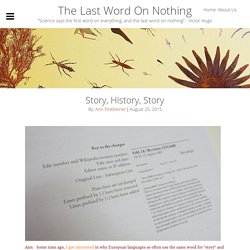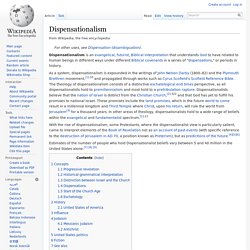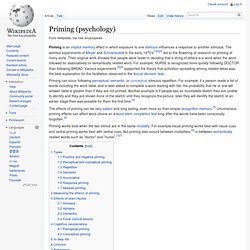

Story, History, Story. Ann: Some time ago, I got interested in why European languages so often use the same word for “story” and “history.”

Every English speaker knows that having one word for two such different things — fiction and truth, respectively — is anathema. But my thinking didn’t go much farther than that, it rarely does. So I found a couple of actual, practicing PhD historians, Audra Wolfe and Alex Wellerstein (bio’s below), and asked them: what’s story, what’s history, are they the same, and if not what’s the relation between them? Audra: Of course histories are stories. History is the study of change over time, which means that it’s an inherently narrative enterprise, with a beginning, a middle, and an end.
Ann: Boy, does that sound exactly how I see my own stories: I’m taking the real world and assigning beginnings, middles, and ends. Audra: But “story” doesn’t necessarily mean fiction! Ann: You know what happens to the wicked queen in the original Snow White? Dispensationalism. As a system, dispensationalism is expounded in the writings of John Nelson Darby (1800–82) and the Plymouth Brethren movement,[1]:10 and propagated through works such as Cyrus Scofield's Scofield Reference Bible.

The theology of dispensationalism consists of a distinctive eschatological end times perspective, as all dispensationalists hold to premillennialism and most hold to a pretribulation rapture. Dispensationalists believe that the nation of Israel is distinct from the Christian Church,[2]:322 and that God has yet to fulfill his promises to national Israel. These promises include the land promises, which in the future world to come result in a millennial kingdom and Third Temple where Christ, upon his return, will rule the world from Jerusalem[3] for a thousand years. In other areas of theology, dispensationalists hold to a wide range of beliefs within the evangelical and fundamentalist spectrum.[1]:13 Concepts[edit] Progressive revelation[edit] Dispensations[edit] Eschatology[edit]
Like Pale Gold - The Great Gatsby Part I: Crash Course English Literature #4. Our Ability To Smell Depends On Our Culture. I have a sense of smell so strong it's probably rivaled only by Superman's.

I can often smell things that no one else in the room can smell, or can only smell faintly when I can smell them strongly. There are a lot of upsides and downsides to it though, for example, unpleasant smells have a very strong effect on me to the point where it's difficult to converse with someone who has bad breath, or hard to be in a room where someone has farted.
My wife is the same way. And yes, I call it her super power. She can tell me what I had for lunch two days ago. Nice to meet you Dr. I feel like I've got an enhanced olfactory bulb, too, or maybe I just relish scents more than the average person. I'm like that too, and so is everyone in my immediate family. The last 3 generations of my family were born in the US, so I'm not sure about it being a European thing. I feel bad for you. Have the same thing. Narrative therapy. Their approach became prevalent in North America with the 1990 publication of their book, Narrative Means to Therapeutic Ends,[1] followed by numerous books and articles about previously unmanageable cases of anorexia nervosa, ADHD, schizophrenia, and many other problems.

In 2007 White published Maps of Narrative Practice,[2] a presentation of six kinds of key conversations. Overview[edit] Michael White 2006 By conceptualizing a non-essentialized identity, narrative practices separate persons from qualities or attributes that are taken-for-granted essentialisms within modernist and structuralist paradigms. This process of externalization[1] allows people to consider their relationships with problems, thus the narrative motto: “The person is not the problem, the problem is the problem.” Operationally, narrative therapy involves a process of deconstruction and "meaning making" which are achieved through questioning and collaboration with the client. Priming (psychology) Priming can occur following perceptual, semantic, or conceptual stimulus repetition.

For example, if a person reads a list of words including the word table, and is later asked to complete a word starting with tab, the probability that he or she will answer table is greater than if they are not primed. Another example is if people see an incomplete sketch they are unable to identify and they are shown more of the sketch until they recognize the picture, later they will identify the sketch at an earlier stage than was possible for them the first time.[4] The terms positive and negative priming refer to when priming affects the speed of processing. Negative priming is more difficult to explain. The difference between perceptual and conceptual primes is whether items with a similar form or items with a similar meaning are primed. Perceptual priming is based on the form of the stimulus and is enhanced by the match between the early and later stimuli.